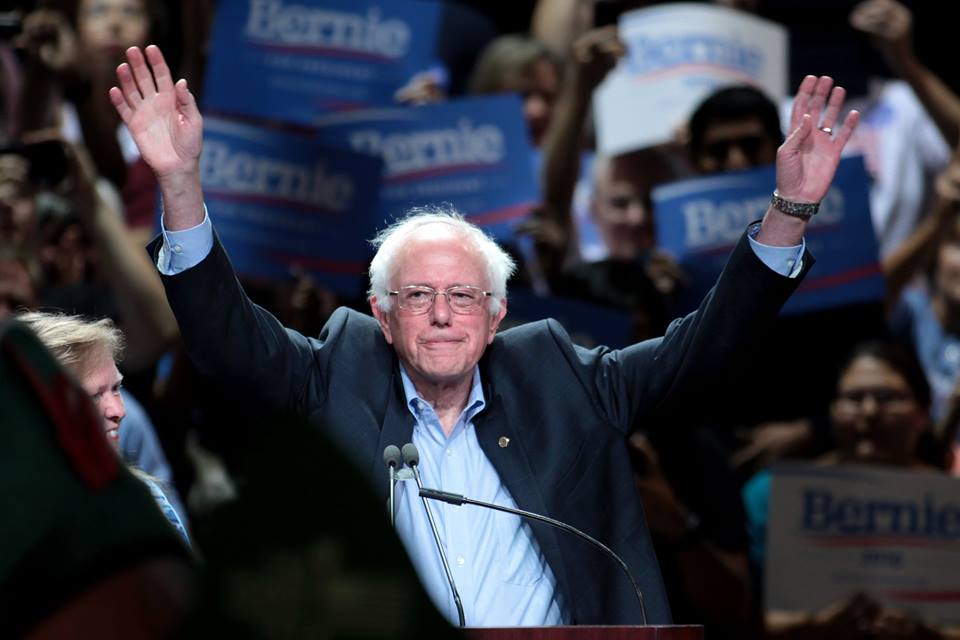
Bernie Sanders’ proposal to deschedule cannabis by removing marijuana from the list of scheduled drugs shook the cannabis law reform movement in the best way possible. For the most part, the cannabis community has celebrated victory after victory in recent years and Sanders’ announcement that marijuana should be descheduled falls upon the heels of not just historic political victories in 2014 and a Gallup poll showing 58% support for legalization, but also the Liberal Party’s majority victory in Canada’s recent parliamentary elections. The Liberal Party named cannabis legalization as part of its platform and its leader, Justin Trudeau, has admitted using cannabis and stated that he would work on ending prohibition right away.
While the Democratic Party here in the states hasn’t added marijuana legalization to its platform yet, state Democratic parties have wisely endorsed state efforts. Bernie Sanders is now the first mainstream presidential candidate to effectively call for an end to federal marijuana prohibition and it is a big freaking deal. Vice-president Joe Biden may even use a different expletive that starts with “F” but I try to keep my blog posts relatively “clean”, but I think that it is indisputable that this is definitely a “BFD” for the cannabis law reform movement.
The call to remove marijuana from the list of federally scheduled drugs doesn’t end cannabis prohibition overnight across the nation as states will be free to maintain their own prohibitionist policies, but it will allow states to choose their own policies, just as states do with alcohol today. The alcohol laws in Portland, Oregon, are different than the laws in Salt Lake City, Utah, and it is suitable that cannabis laws follow in the same path. Over time, without obstacles put into place by federal law, more states will move to legalize cannabis so they can better prioritize resources, create jobs and generate revenue.
Culturally, Sanders’ call to deschedule marijuana federally will have massive implications as even more elected officials, candidates, policy makers and everyday Americans will be more open and honest about their support of marijuana legalization. One of the biggest reasons that cannabis prohibition has had such great success recently is the fact that many ordinary people aren’t afraid to come out of the cannabis closet, either as someone that utilizes cannabis or just supports legalization.
Amber Phillips, writing in The Washington Post agrees that Bernie Sanders’ call to end marijuana prohibition is a big freaking deal:
There are a few reasons his announcement was a big moment for pot politically. First, the medical community at large would agree with Sanders that pot is not as dangerous as, say, crack cocaine and heroin and the other highly addictive drugs it is currently classified with. Respected organizations like the American Medical Association have also said keeping marijuana on a legally unreachable shelf stymies research for its healing potentials. In that way, Sanders is bringing already-existent medical views of pot to the forefront of a political debate that hasn’t yet embraced them.
Second, Sanders is not a fringe candidate — although you could argue some of the democratic socialist’s policies aren’t exactly mainstream. He regularly draws crowds in the thousands, if not tens of thousands, and is giving Democratic front-runner Hillary Clinton a run for her money. And if there’s anything this campaign has taught us, it’s that Sanders has the ability to draw Clinton to the left politically. That doesn’t mean Clinton will take the same stance, but it does mean there could be pressure to move in that direction.
Third, this just feels like something of a turning point in our nation’s approach to marijuana. Like it or not, the signs would indicate we’re on a national trajectory toward decriminalization, perhaps even legalization. And it’s happening remarkably fast, relative to other social issues.
While marijuana prohibition won’t end immediately if Sanders’ proposal is successful, it will be a tremendous blow to the failed and harmful policy of prohibition and prohibitions days will surely be numbered. Despite the fact that polls and electoral victories demonstrate great support for cannabis legalization, actual voting results for marijuana measures tend to outperform the polls, showing that many people are still afraid to admit their support to anonymous strangers asking them their opinion on marijuana.
A major candidate like Bernie Sanders will provide political and cultural “cover” for more people to be honest about their practical position that marijuana prohibition, like alcohol prohibition before it, is a failed policy that needs to end. It will be interesting to see how the polls react to Sanders’ announcement, but I predict that this will only add to the momentum of his candidacy and we will see even more people state that they #FeelTheBern.
Video of Bernie Sanders’ historic announcement:






